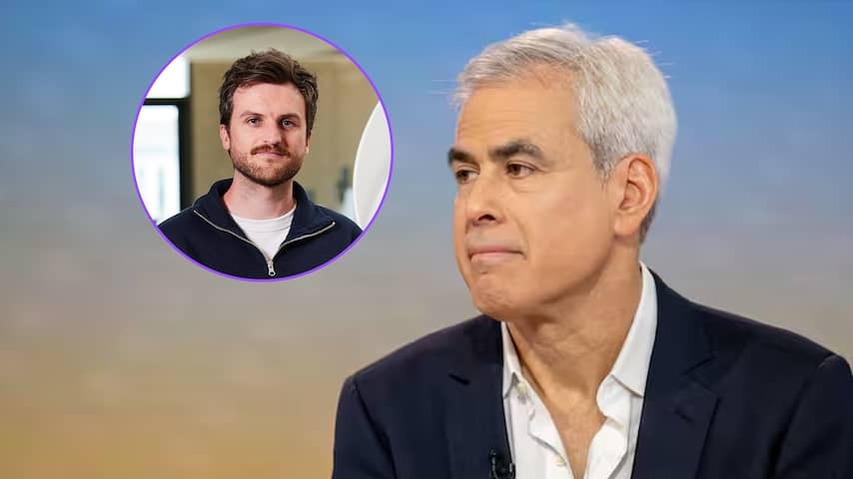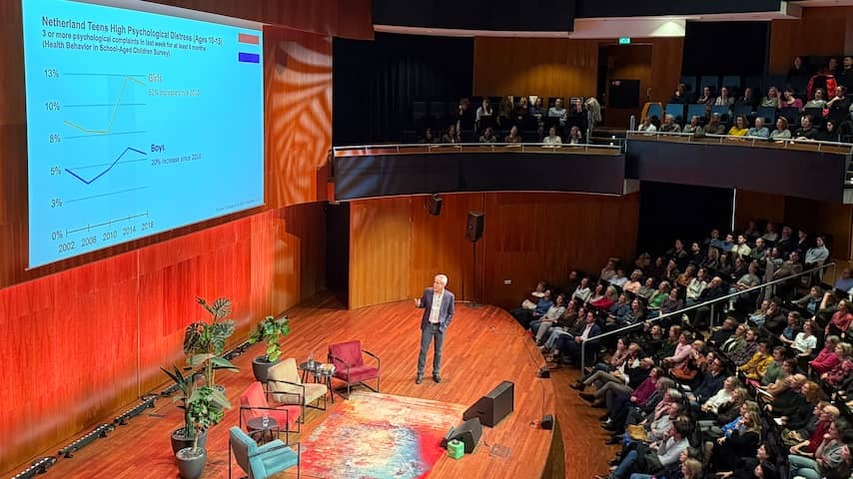
In screen time , Tech Reporter Rutger Otto Writes Weekly About the Internet. This week: Jonathan Haidt’s visit to the Netherlands. Haidt wrote the book Generation Anxiety About the Impact of Smartphones on Children, which Garnered Him A Lot Of Criticism.
I Braced Myelf for Haidt’s Visit to Utrecht. The Social Psychologist Has A Pedantic Opinion About the Influence of Social Media on Children and How They Should Deal With Smartphones. HIS Bestseller Generation Anxiety Faces Considerable Resistance from the Scientific Community. Initiatives to keep children away from smartphones for as long as Possible have also emerged in the Netherlands.
Haidt is on vacation in Europe with his family, but in the meantime, he is preaching his gospel on Various Stages and in TV programs. He also did so in TivoliVredenburg in Utrecht, where I saw that he had little trouble convincing a full house of his ideas. Roughly, His Point is: No smartphone for children Until they are Fourteen. Only then are their adolescent brains ready for it.
I have read Haidt’s Book. Using Various Research Results and Graphs, he charts the “Mental Health Crisis” of Young People Since 2012. They Are Lonelier, Feel Unhappier, and Their Concentration Decreases. Accordance to Haidt, it is no coincidence that phones Changed duration that same period. From an instrument that we only use when we needed it to a platform where companies compete to hold people’s attention.
For years, I have heard howhaidt and the scientific community have leg arguing with each other. The American only looks at studies that link smartphone use to the declining mental health of Young People. “A correlation does not mean that there is a cause and effect,” I hear from Loes Pouwels, a developmental psychologist at Radboud University. “Young people with anxiety and depression tend to use social media more or, but we do not see that young people Become more depressed or anxious to a Greater extent. Of the iter causes that increase the complaints.”
She does not deny, howver, that there has been a decrease in the mental well-being of Young People in recent years. Not Everything is the Phone’s Fault. “We are much more open about mental problems thesis days,” She says. Maybe it is more visible now. “And Young People Experience More Pressure from Social Problems.”
Nonsense, Says Haidt. That does not Apply to Early Teens. “They are really not influenced by political elections or house prices,” he says. “Only the companies Know How harmful their apps are to children. Take snapchat, which indicates that it recoverives at Thousand reports of sextortion every month. Those are clear figures of Victims.”

Haidt’s argument Sometimes Flirts Too Much with American Black-and-White Thinking. It does not work to teach children about social media, he says. “Parents can warn children not to send nude photos to strangers, but in the meantime, they have to compete the largest, smartest, and richest companions in the world,” he says. “Companies connect children with strangers who want sex or money. We are not going to teach children to talk safely with pedophiles. So let’s make sure they can’t talk to pedophiles.”
The Majority of the Audience in Tivoli Raises Their Hand When Haidt Asks Who would see Something in the Idea of Not Giving Children a Smartphone Until They Are Fourteen. And they are also not allowed to have an account on social media until that age. This way they can read along and watch videos, but they do not come in contact with creeps and algorithms.
I call that black-and-white thinking because haidt skips the nuances. He ignores Young People who do derive Positive Effects From Smartphone Use, Says Pouwels. “There is also a group that gets support from it, or finds like-minded people they would not come andherwise be able to reach.”
Somewhere in That Gray Area, Haidt and the Scientific Community Can Find Each Other, I Think. Both Want to Improve the Well-Being of Young People, but in Their Own Way. Pouwels Sees Nothing in a Ban because the smartphone is not the only problem. Not to mention the practical diffulties of setting up a secure age verification that does not violate privacy. (Although Haidt Has an Answer to Everything. “Companies have so much money and knowledge, so they can do this too.”)
AltheHe I see in Tivoli That Haidt Gets Some Opposition, It is Ultimately A Bit Like Preaching To The Choir. After a video of a woman who lets her Young son Walk Into McDonald’s Alone for an order and nervously waits to see if he will healce, Haidt Becomes emotional. It reminds him or how his children grew up, he says. And that children today get so little space for this child or self-development.
After the Lecture, some Concerned Parents Take a Selfie with the American, Who then Quickly Leaves The Building. His family is Waiting for Him, and hey to spend time with them. Without Phones.